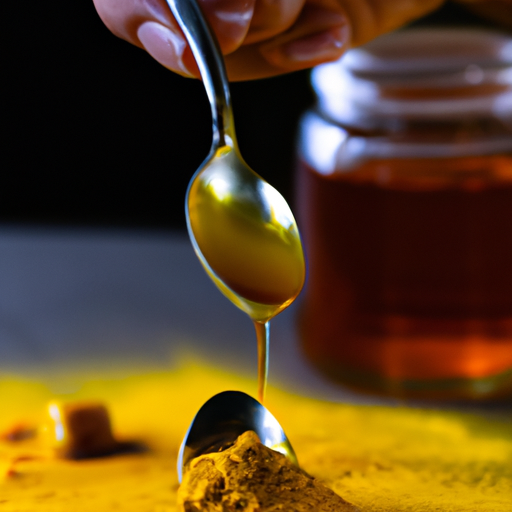As an individual who has faced challenges with digestive problems previously, I am continuously searching for natural solutions to relieve symptoms such as constipation. Lately, there has been a lot of discussion surrounding ginger turmeric tea and its ability to enhance digestion and support normal bowel movements. However, the question remains: does this tea truly aid in bowel movements, or is it simply a passing health trend?
To answer this question, it’s important to first understand the benefits of ginger and turmeric, the two key ingredients in this tea. Both of these spices have been used for centuries in traditional medicine to treat a variety of ailments, including digestive issues.
So, let’s dive into the science behind ginger and turmeric and how they can help improve our gut health.
Key Takeaways
- Ginger and turmeric are the key ingredients in ginger turmeric tea, which have been traditionally used for treating digestive issues and have anti-inflammatory and antioxidant properties.
- Ginger turmeric tea may have potential health benefits such as reducing inflammation, improving immune function, aiding digestion, relieving constipation, and reducing the risk of chronic diseases.
- The preparation of ginger turmeric tea involves adding grated ginger and turmeric to boiling water and simmering, and it can be adjusted to personal taste by adding honey, lemon, or cinnamon.
- Long-term use of high doses of ginger turmeric tea may have adverse effects such as gastrointestinal issues, blood-thinning effects, and allergic reactions. It is important for individuals with certain medical conditions or taking medication to consult their doctor before regularly consuming ginger turmeric tea. Other natural remedies for constipation include psyllium husk and senna supplements, increasing fiber intake, and drinking plenty of water. Maintaining a healthy diet and lifestyle is also crucial for promoting regular bowel movements and preventing constipation.
Overview of Ginger Turmeric Tea
If you’re looking for a cozy and warming beverage, ginger turmeric tea might just be the perfect choice for you. This tea is known for its distinct flavor, which is a combination of spiciness and earthiness. The ginger adds a warm, spicy note while the turmeric gives the tea an earthy flavor with a slight bitterness. Together, they create a unique taste that is both refreshing and invigorating.
Aside from its delicious taste, ginger turmeric tea is also known for its health benefits beyond digestion. Ginger is known for its anti-inflammatory and antioxidant properties, which can help reduce inflammation and improve immune function.
Turmeric, on the other hand, contains curcumin, a powerful antioxidant that can help reduce oxidative stress and may even have anti-cancer properties. So not only does this tea make for a tasty and comforting drink, but it also has potential health benefits that are worth considering.
With that said, let’s dive into the science behind ginger and turmeric.
The Science Behind Ginger and Turmeric
Understanding the scientific connection between ginger and turmeric can shed light on their potential effects on the body. Both ginger and turmeric are known for their anti-inflammatory properties, which are attributed to the presence of bioactive compounds such as gingerols, shogaols, and curcuminoids. These compounds have been found to inhibit the production of pro-inflammatory molecules in the body, thereby reducing inflammation and pain. In fact, some research suggests that ginger and turmeric may be as effective as non-steroidal anti-inflammatory drugs (NSAIDs) in treating osteoarthritis and other inflammatory conditions.
In addition to their anti-inflammatory properties, ginger and turmeric are also widely used in culinary practices around the world. Ginger, for instance, is a popular ingredient in Asian cuisine and is often used to add flavor and aroma to dishes. Its pungent taste and aroma come from the presence of gingerols and shogaols, which are also responsible for its medicinal properties. Similarly, turmeric is commonly used in Indian and Middle Eastern cuisine and is known for its distinctive yellow color and earthy flavor. Its active compound, curcumin, is responsible for its anti-inflammatory and antioxidant properties. Overall, ginger and turmeric are versatile ingredients that offer numerous health benefits, including potential relief from digestive issues.
Moving on to the next section, it is important to note that ginger turmeric tea has been associated with improved digestive health and may aid in relieving constipation.
Digestive Issues and Constipation
Improving digestive health and relieving constipation can be a pain in the gut, but adding ginger turmeric tea to your diet might just be the cherry on top.
Digestive issues and constipation can be caused by a variety of factors, including stress. When we’re stressed, our body goes into fight or flight mode, diverting blood flow away from the digestive system. This leads to slower digestion and constipation. To combat this, it’s important to manage stress levels through techniques such as exercise, meditation, and deep breathing.
In addition to managing stress, there are also certain foods to avoid for better digestion. These include processed foods, fried foods, dairy, and high-fat meats. Instead, opt for fiber-rich foods like fruits, vegetables, and whole grains.
Ginger turmeric tea can also be a helpful addition to your diet for improving digestive health. In the next section, we’ll explore how ginger turmeric tea can help with digestive issues and constipation.
How Ginger Turmeric Tea Can Help
I’ve found that drinking ginger turmeric tea can be beneficial for soothing my digestive tract. The combination of these two powerful herbs can help to reduce inflammation and promote healthy digestion.
Additionally, the tea may stimulate bowel movements, making it a natural remedy for constipation.
Soothing the Digestive Tract
If you’re experiencing digestive discomfort, drinking ginger turmeric tea might help soothe your stomach and improve bowel movements. Herbal remedies like ginger and turmeric have been used for centuries to treat various ailments, including digestive issues. The combination of these two herbs in tea form can provide a powerful punch of anti-inflammatory and antioxidant properties that can help soothe the digestive tract.
Here are four ways that ginger turmeric tea can help soothe your digestive tract:
-
Reduces inflammation: The anti-inflammatory properties of ginger and turmeric can help reduce inflammation in the gut, which can alleviate symptoms like bloating and discomfort.
-
Boosts digestion: The active compounds in ginger and turmeric can help stimulate the production of digestive juices, which can improve digestion and nutrient absorption.
-
Calms the stomach: Ginger has a long history of use as a natural remedy for nausea and vomiting, and turmeric has been shown to help reduce symptoms of indigestion.
-
Supports gut health: Both ginger and turmeric have been shown to have beneficial effects on gut health, including reducing inflammation, supporting the growth of beneficial gut bacteria, and improving overall gut function.
By soothing the digestive tract, ginger turmeric tea can help stimulate bowel movements and improve overall digestive function.
Stimulating Bowel Movements
You’re probably not in the mood for a wild ride, but sipping on some ginger turmeric tea might just get things moving down there. Ginger and turmeric are natural remedies known for their anti-inflammatory properties. They can also help stimulate bowel movements and soothe the digestive tract.
In addition to drinking ginger turmeric tea, dietary changes can also help improve bowel movements. Eating foods high in fiber, like fruits and vegetables, can help regulate bowel movements. Staying hydrated and exercising regularly can also keep things moving smoothly.
So if you’re feeling backed up, try sipping on some ginger turmeric tea and making some dietary changes to help stimulate bowel movements.
As for other health benefits of ginger turmeric tea, it’s been shown to help reduce inflammation, improve brain function, and lower the risk of chronic diseases like heart disease and cancer. So not only can it help with digestion, but it’s also a great addition to a healthy lifestyle.
Other Health Benefits of Ginger Turmeric Tea
Spice up your morning routine with a cup of aromatic ginger turmeric tea, known for its numerous health benefits. The anti-inflammatory properties of ginger and turmeric make it a great choice for people suffering from chronic pain, arthritis, or other inflammatory conditions. Moreover, this tea may also help boost digestion, reduce nausea, and alleviate symptoms of indigestion.
The brewing techniques for ginger turmeric tea are pretty straightforward. Simply add grated ginger and turmeric to a pot of boiling water and let it simmer for 10-15 minutes. You can also add honey, lemon, or cinnamon to enhance the flavor.
Now that we know the benefits of ginger turmeric tea, let’s move on to how to prepare this amazing beverage.
How to Prepare Ginger Turmeric Tea
After learning about the various health benefits of ginger turmeric tea, I was excited to try making it for myself. To prepare this tea, you’ll need fresh ginger, fresh turmeric, honey, lemon juice, and water. You can easily adjust the recipe to your liking by adding more or less of each ingredient.
To begin, peel and chop the ginger and turmeric into small pieces. Add them to a pot with water and bring it to a boil. Once boiling, reduce the heat and let it simmer for about 10 minutes. Remove the pot from the heat and strain the liquid into a mug. Add honey and lemon juice to taste.
While ginger turmeric tea is primarily known for its digestive benefits, it also has numerous other health benefits. Both ginger and turmeric have anti-inflammatory properties and are known to help boost the immune system. Ginger can also help reduce nausea and alleviate menstrual pain, while turmeric has been shown to help with joint pain and Alzheimer’s disease.
By incorporating this tea into your daily routine, you can reap the benefits beyond just aiding digestion.
Moving forward, it’s important to note that while ginger turmeric tea is generally safe for most people, there are potential side effects to be aware of. Let’s explore these in the next section.
Potential Side Effects
Let’s take a closer look at some of the potential side effects of regularly consuming ginger turmeric tea. While ginger and turmeric are generally considered safe, long-term use of high doses may cause some adverse effects. Here are a few side effects that you should be aware of:
-
Gastrointestinal issues: Ginger turmeric tea may cause stomach upset, bloating, and flatulence in some individuals. This is because ginger and turmeric stimulate the digestive system and increase the production of stomach acid. If you have a sensitive stomach or suffer from acid reflux, you may want to avoid consuming this tea on an empty stomach or in excessive amounts.
-
Blood-thinning effects: Ginger and turmeric have blood-thinning properties that may interfere with blood clotting. If you’re taking blood-thinning medications or have a bleeding disorder, check with your doctor before consuming ginger turmeric tea.
-
Allergic reactions: Some people may be allergic to ginger or turmeric. If you experience any symptoms of an allergic reaction, such as hives, itching, or swelling, stop consuming the tea and seek medical attention immediately.
It’s important to note that these side effects are not common and usually occur with long-term use of high doses. If you experience any adverse effects, it’s best to consult with a healthcare professional before continuing to consume ginger turmeric tea. In the next section, we’ll discuss some precautions for certain conditions that may increase the risk of side effects.
Precautions for Certain Conditions
If you have a medical condition or are taking medication, it’s important to talk to your doctor before regularly consuming ginger turmeric tea to ensure it is safe for you. This is because certain conditions may require dietary restrictions that could interfere with the ingredients in the tea.
For instance, individuals with gallstones may need to avoid turmeric as it can exacerbate the condition. Similarly, those with bleeding disorders or taking blood-thinning medication should use caution when consuming ginger as it can increase bleeding risk.
Furthermore, ginger turmeric tea may interact with certain medications, leading to adverse effects. For example, individuals taking medication for diabetes, high blood pressure, or blood thinners should speak with their healthcare provider before adding ginger turmeric tea to their diet. It’s essential to take precautions and not assume that natural remedies are always safe.
In summary, if you have a medical condition or are taking medication, it’s vital to speak with your healthcare provider before consuming ginger turmeric tea or any other natural remedies for constipation.
Without a doubt, it’s crucial to ensure that natural remedies are safe for your health. In the next section, we will explore other natural remedies for constipation that you can use as alternatives to ginger turmeric tea.
Other Natural Remedies for Constipation
You can try other natural remedies to relieve constipation. Herbal supplements like psyllium husk and senna can help increase bowel movements. Psyllium husk, derived from the seeds of Plantago ovata, can absorb water in the intestines and promote regular bowel movements.
Senna, on the other hand, is a natural laxative that stimulates the muscles in the colon to push stool out. Aside from herbal supplements, dietary changes can also help relieve constipation. Increasing your fiber intake can soften your stool and make it easier to pass.
Foods like fruits, vegetables, whole grains, and legumes are good sources of fiber. Drinking plenty of water can also help prevent constipation by keeping your stool soft and easy to pass. In general, it’s important to maintain a healthy diet and lifestyle to promote regular bowel movements and prevent constipation.
Frequently Asked Questions
What are the potential risks of consuming ginger turmeric tea?
As a health professional, I’m aware of the potential risks of consuming ginger turmeric tea. Ginger can cause digestive issues and turmeric can lead to allergic reactions. Long term effects of consumption are still being studied.
Can ginger turmeric tea help with weight loss?
Ginger turmeric tea has metabolic benefits that can aid in weight management. Studies have shown that the active compounds in these ingredients can improve digestion, increase metabolism, and reduce inflammation, all of which may contribute to weight loss.
Is it safe to consume ginger turmeric tea while pregnant or breastfeeding?
As a healthcare provider, I recommend exercising caution with ginger turmeric tea during pregnancy and breastfeeding. While small amounts are likely safe, larger amounts may pose risks. Consult with your healthcare provider before consuming.
How often should I drink ginger turmeric tea to see its benefits?
Drinking 2-3 cups of ginger turmeric tea per day is optimal for reaping its benefits, including reduced inflammation and improved digestion. The best preparation method is boiling the ingredients for 10-15 minutes.
Can ginger turmeric tea interact with any medications I’m currently taking?
When considering ginger turmeric tea, it’s important to be aware of potential interactions with medications. Some blood thinners and diabetes medications may be affected. Side effects such as stomach upset may also occur. Consult with a healthcare provider before consuming.
Conclusion
In conclusion, if you’re looking for a natural remedy to help you poop, ginger turmeric tea may be just what you need.
The combination of ginger and turmeric has been scientifically proven to aid in digestion and relieve constipation.
Not only that, but this tea also has a plethora of other health benefits, including reducing inflammation, boosting immunity, and improving brain function.
But don’t just take my word for it, try it out for yourself!
With its delicious taste and numerous health benefits, ginger turmeric tea is a must-try for anyone looking to improve their overall well-being.
So, go ahead and brew yourself a cup, and let the magic of ginger and turmeric work its wonders.
Trust me, your body will thank you for it!










